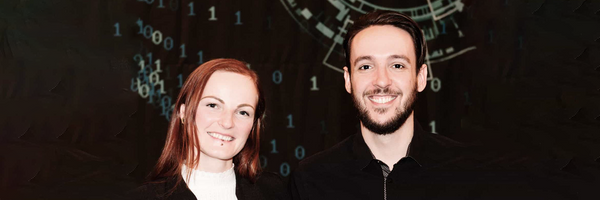Martijn Schirp • • 6 min read
Jordan Peterson Explains the Most Useful Psychological Exercise Anyone Can Ever Do
Consciousness & Meditation Psychology & Happiness authenticity

“Deeper and more fundamental than sexuality, deeper than the craving for social power, deeper even than the desire for possessions, there is a still more generalized and more universal craving in the human makeup. It is the craving for knowledge of the right direction — for orientation.”
— William Sheldon
At one point in your life, you were a newborn infant, yet to acquire language.
To become a full fledged mature adult, you had to learn how to navigate through a sea of symbols.
Kids are truly amazing at learning a new language. While developing, the newborn moves from being mostly receptive, to becoming more interactive, and finally stepping into their uniquely individual creative capabilities.
This is where the human organism most likely differs from other forms of life. Humans need to take positions, develop perspectives, and shift through and express endless waves of information.
During this process, as Jordan Peterson explains, you inevitably have to “pull in concepts from the world at a level of abstraction that may have virtually nothing to do with you.”
For example, your parents might have passed on outdated traditions; your church may have taught dogmatic ideologies; and your school may have emphasized the need to repeat information, as opposed to question it.
The thoughts we experience as ours are actually formed through years of formative pressure called social conditioning, which is the process of learning what we can express to secure future essential needs, like love and food, and what we need to repress so as not to jeopardize these conditions for a healthy and meaningful life.
Through this process it is not uncommon to move from childlike authentic expression, to fear-fueled repetitive phrases we’ve heard before.
By repeating cliches, we refer to generalizations, and thus refrain from speaking out of our own uniqueness. In other words, we hide behind a so called “They.”
This is how we enter a state of existential incongruence.
Jordan Peterson continues: “you might end up with theories of who you are, that in no necessity have any basis in who or what you actually are.”
You might end up believing that you are something you’re actually not.
Perhaps even worse, you might end up believing people in general are a certain way, and use this belief as justification to force various beliefs and dogmas onto them.
According to the existential perspective, such reiterated and misaligned structures of thought makes you inauthentic.
For example, you might believe you are identical to your intellect, which Jordan Peterson calls “the worst sin of intelligent people.”
Because of this, you might believe people don’t have value beyond their intellect, and then treat them as such.
Having this belief will make you incongruent, since people are more than just their intellect, and offer value beyond the symbolic reality they operate in.
Being incongruent means, according to Jordan Peterson’s definition, “you are not a singular entity at all the multiple levels at which you exist.”
And this leads to all kinds of problems, frictions, and issues.
Imagine having a fight with your partner. You might judge your partner for not understanding your intellectual interpretation of the situation (as this is congruent with your belief of what a human should value most) whilst your partner needs your emotional understanding of where he or she is coming from.
In this way, you impose your wrong belief onto the actual situation at hand, and end up missing the truthful expression of that very moment.
Becoming Aware of Subception to Overcome Incongruence
Thankfully, Jordan Peterson claims we can develop a sensitivity to a kind of sixth sense called “subception”, a term the American psychologist Carl Rogers coined to explain people’s unconscious defense mechanisms towards a “subceived” threat — a feeling of anxiety, a sense that something is wrong without knowing exactly what it is.
Subception, according to Jordan Peterson, is a touch-like sense that tells you how you react internally; it’s often used as a perceptual defense that involves unconsciously applying strategies to prevent a troubling stimulus from entering consciousness.
For example, one of the most common strategies we (erroneously) use is blaming others for our own distressed emotional state in order to avoid the alternative conclusion, which is that we are responsible for our own (high) existence.
By moving away from such defensiveness and reacting more constructively to the sensation of subception, according to Carl Rogers, “we develop a growing openness to experience, not distorting the moment to fit personality or self concept but allowing personality and self concept to emanate from the experience.”
Humans respond to the threat of exclusion often unconsciously, and therefore do not speak what they truly want to say, namely their own unique expression of that very moment, and instead just repeat what they have heard before, so as to never truly stand behind their words.
We cut off our own uniqueness, and this is perhaps why Nietzsche famously wrote that humans “hide themselves behind customs and opinions” because of “fear of [their] neighbor, who demands conformity.”
But, you can overcome incongruence and become an authentic individual by following the existential philosophy of authenticity.
How To Become An Authentic Person By Practicing This Existential Exercise
To overcome this disempowering way of being, Jordan Peterson suggests the following exercise, which he calls “the most useful psychological exercise anyone can do”.
I compiled and remixed multiple writings, talks, and interviews by Professor Peterson on authentic speech, incongruence psychology, and existential orientation to create the following exercise:
Start with the assumption that most of the things you say and think aren’t yours, and that you don’t believe them; they are just things you picked up for one reason or another.
Imagine your own thoughts said by someone you just met, in order to detach yourself from what you think and say.
Stop blindly repeating the opinions of others.
Realize this is not you.
Then start listening to what you say, and more importantly…
Start feeling what you say.
Then remind yourself of this simple rule:
Pay attention to whether what you say makes you feel stronger or weaker.
If stronger, keep saying it.
If weaker, like things coming apart in your midsection, a feeling of disintegration, stop saying it right away.
When you feel a physiological sensation of unsteadiness, STOP immediately.
Then carefully seek out words that are truthful.
Reformulate them so that when you restate your thoughts, your feeling of integrity, strength, and authenticity reappears.
You can actually feel this down the middle of your body.
Saying something untrue gives you a feeling of weakness because you dissociate; part of you agrees, and another part disagrees, splitting your psyche.
For example, saying things you don’t believe in order to impress someone, or to make sure you will continue to be accepted in some social order, creates a mask behind which you feel you must hide.
You want to avoid any falseness about your self representation, lest you slip off into chaos, into a never-ending multiplicity of lies.
But if you get your words right, you can feel yourself coming back into alignment.
By following this exercise, you make your capacity to pay attention superordinate to your capacity to speak.
Attention is a higher function than intellect, since attention teaches intellect.
So pay very careful attention to what you say.
Try to articulate what you believe to be true as carefully as possible.
Then, accept the outcome. Assume that your truth, as lived and spoken, will produce the best possible outcome.
It’s an act of faith.
Yes.
But so is every other way of being.
In this way, you’re centered in your being so you can withstand life’s suffering without being corrupted.
This is the source of a meaningful existence.
To withstand the onslaught of life you will have to learn how to speak from the bottom of your soul. There is nothing better than this.
Existential Dread: A Way Out
This powerful existential exercise explained by Jordan Peterson prevents you from being deceived by the ghosts of the dead, namely beliefs from the past that have no immediate value to your present self.
As Carl Rogers said, by making statements of authenticity, one “open[s] one’s spirit to what is going on now, and discover[s] in that present process whatever structure it appears to have.”
Yes, you will end up saying things that will make others feel uncomfortable.
Yes, you will end up sharing thoughts that you’d prefer to keep private.
Yes, you will have to own up to and take responsibility for what you truly believe.
But, as Jordan Peterson teaches us, by sorting yourself out you will be stronger, less unsure, more eloquent, less flaky, more authentic, less incongruent, more reliable and constructive, and less rigid.
You let meaning arrive from the bottom up, as opposed to forcing meaning down from a higher level of abstraction.
In this authentic way, you will be able to more freely express different roles appropriate to the situation, and become less stifled and shackled, more creative, and less of a coward.
By overcoming shame and fear, you will inspire others to do the same.
Before judging others, Dr. Peterson would urge you, to clean up your own room first.
A great way you can put yourself together is to try his Self-Authoring course, the writing program that changes lives.
There is nothing higher than embodying this existential orientation.
“This process of the good life is not, I am convinced, a life for the faint-hearted. It involves the stretching and growing of becoming more and more of one’s potentialities. It involves the courage to be. It means launching oneself fully into the stream of life.”
— Carl Rogers
Are you curious where life will take you if you accept more and more of your potentialities? I strongly encourage you to accept HighExistence’s 30 Challenges To Enlightenment to find out who you could become.
Follow Jordan Peterson on Youtube here.










